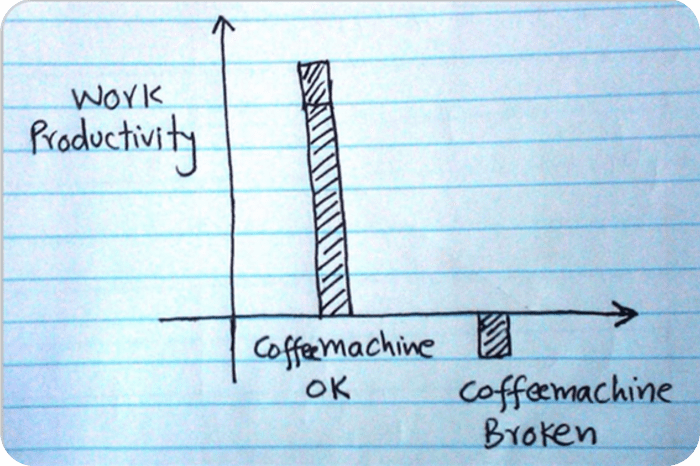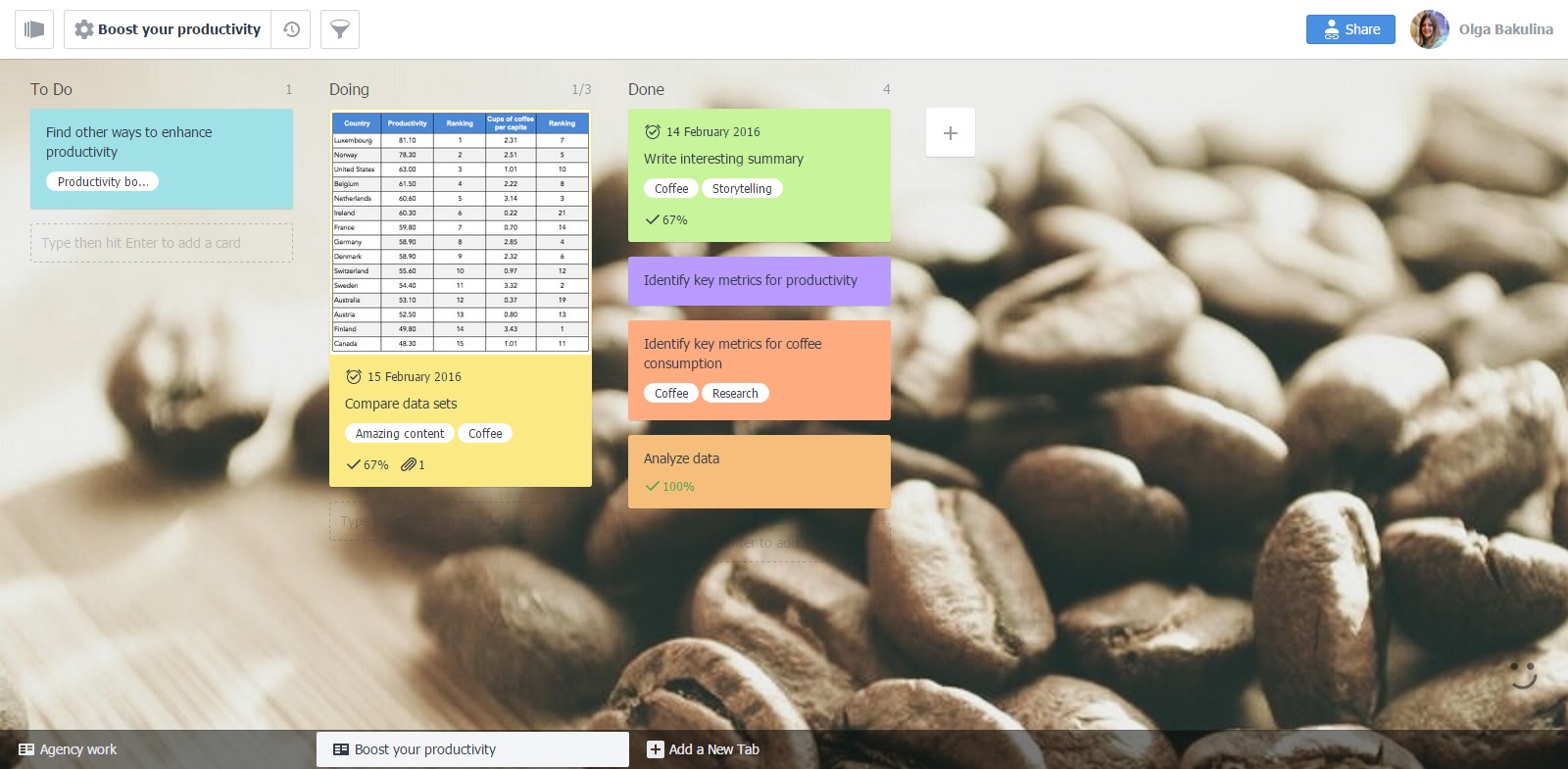
What Really Boosts Your Productivity?
You probably know that comparing your espresso-enhanced productivity to your caffeine free co-worker’s output isn’t much of an experiment (n=2), but what about at the macro level?
Does a nation’s consumption of coffee have any impact on its productivity? We were curious and sifted through the mountains of data on coffee consumption and productivity until we found this data.
The productivity number is based on gross domestic product (GDP) per hour worked (GDP/hr) and reported by the Organisation for Economic Co-operation and Development. We’ll examine the combination of productivity and consumption, the highly productive workers who don’t rely on coffee, what all this means and how you can be more productive.

The tiny constitutional monarchy of Luxembourg is home to only 562,000 people, but packs a huge GDP at $57.9 billion and they down over 2 cups of coffee per person per day! They come in as the most productive by these metrics. However, if you look at the combined consumption and productivity of Norway you may have the clearest example of Coffee = Productivity, coming in at number two in productivity and number five in coffee consumption, Norway is the only country to make the top five in both categories.
How about those countries that make it into the top for productivity, but don’t consume that much coffee? First off is Ireland, they come in at number six in productivity, but hardly drink a cup a day! How is that even possible? Well, as it turns out the Irish rely on tea to keep them going and they come in as the second highest per capita tea consumption in the world! Then we’ve got Australia and the measly 0.37 cups per capita, but ranking number twelve in productivity. They’re number 19 in coffee consumption, but they’re also number 13 in tea consumption per capita. How they do it, who knows.
The most powerful piece of data suggesting that coffee consumption and productivity are linked is that all but two countries that top the list of most productive are also in the top coffee consumers. When you add the fact that the two not on both lists are some of the top tea consumers in the world it certainly seems to suggest that the world runs on caffeine!
It seems pretty definitive that high coffee consumption leads to a highly productive society, but if you don’t believe the evidence and want a guaranteed way to be more productive? Then browse the Internet and find a list of project management software like Kanbanchi, for example, to set deadlines, goals, assign tasks, and track progress. You’ll be instantly transformed from a lowly barely productive Canadian to a Norwegian box checking, to do crossing machine!
Interested in taking this research even farther? We’ve created a public Kanbanchi board with the research data and our workflow, so that you can pick up where we left off and see what we missed.

If you find any other ways to increase your productivity in terms of making greater value than your colleague at the same period of time, we’ll be glad to add it to our research and continue with this topic even further, because this topic of productivity will never be closed until humans are competing for resources and tools that can enhance their natural skills.
